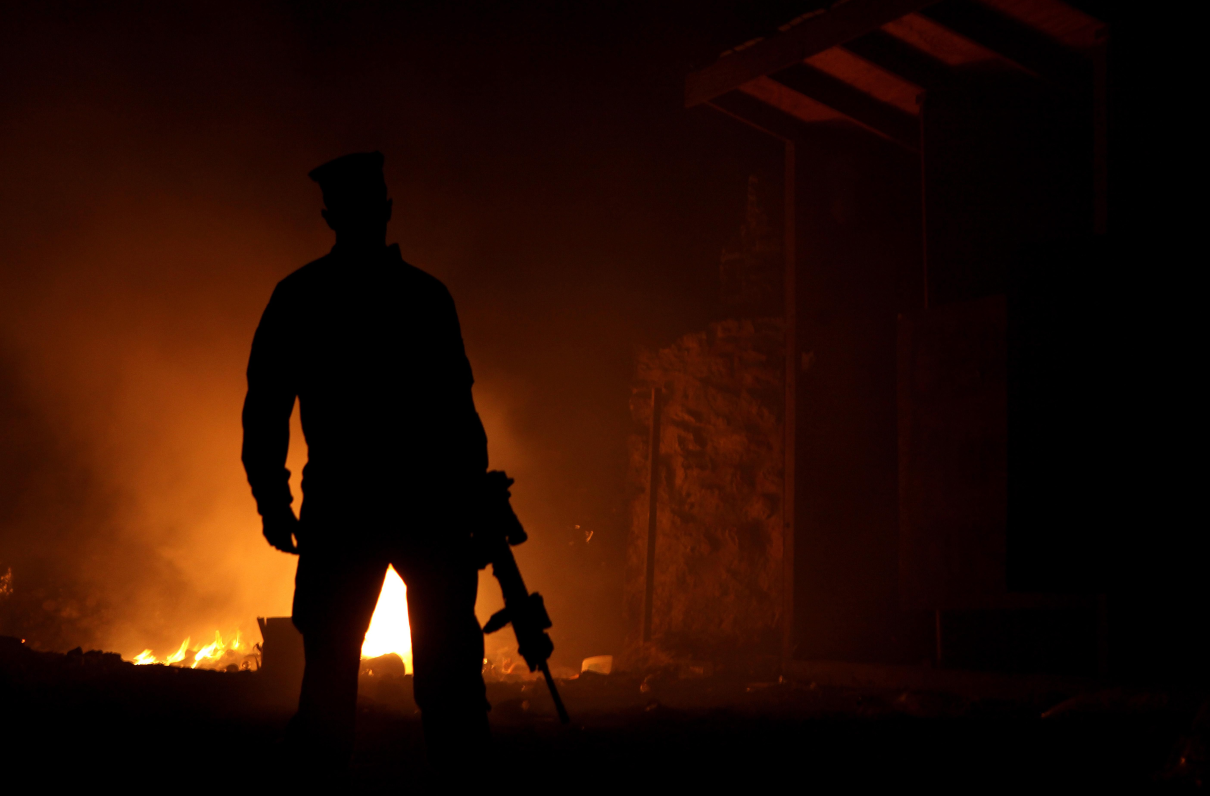This article by Patricia Kime originally appeared on Military.com, the premier resource for the military and veteran community.
A bipartisan group of congressmen is pressuring the Department of Veterans Affairs to extend health benefits and disability compensation automatically to veterans battling illnesses thought to be caused by exposure to open-air burn pits.
Rep. Gus Bilirakis, R-Florida, and Rep. Raul Ruiz, D-California, have both introduced legislation that would direct the VA to study illnesses thought to be related to exposure to the toxic fumes emitted by waste disposal sites in Iraq and Afghanistan and designate any linked illnesses as presumed to be caused by exposure, thereby automatically qualifying affected veterans for VA health care and disability benefits.
Both also have signed on to support each other's bills, while Rep. Joaquin Castro, D-Texas; Rep. Peter King, R-New York; and Rep. Brian Fitzpatrick, R-Pennsylvania, have thrown support behind Ruiz's bill.
Bilirakis, who introduced the same measure in 2018, said the government needs to heed the lessons of Vietnam veterans, who fought nearly 20 years to establish a presumptive service link for exposure to Agent Orange and other toxic herbicides.
[RELATED: After Mandate from Congress, VA Opens Research Center for Burn Pit-Related Illnesses]
"It's not a coincidence that so many of the exposed veterans are all suffering from the same diseases," Bilirakis said in a statement last month. "We saw similar patterns with veterans who had been exposed to Agent Orange in earlier wars. Sadly, many of those veterans died while the VA took decades to study the issue."
Ruiz named his bill after Air Force Staff Sgt. Jennifer Kepner, a medic who served in Iraq in 2004 and died in 2017 of pancreatic cancer, which her family said was caused by exposure to the massive 10-acre burn pit at Balad.
Kepner left behind a nine-year-old daughter and a two-year-old son, as well as her husband, Ben Kepner.
"At the beginning of the fight, we were denied care and help from the VA, not once, but twice. When you are going through that nightmare, the last thing you want is letters from the VA saying, 'There is nothing we can do,'" Kepner said in a statement released by Ruiz's office.
"Jennifer Kepner was a hero who courageously battled pancreatic cancer while fighting for her fellow veterans suffering from pulmonary conditions and rare cancers linked to burn pit exposure," Ruiz said. "[Her] empathy and courage continue to inspire me in this fight for our veterans to get the health care and benefits they have earned and deserve."
Either bill would have to survive the lengthy legislative process to become law, but there is a growing lobbying effort among veterans service organizations, as well as support among members of Congress to help service members with respiratory diseases, cancer and other debilitating illnesses their physicians say were caused by environmental exposures.
The VA has not designated any illnesses as presumed to be related uniquely to service in Iraq or Afghanistan, with the exception of Gulf War veterans who served in Southwest Asia. Medically unexplained chronic multisymptom illnesses, often referred to collectively as Gulf War Syndrome, are considered service-related.
[RELATED: A New Coalition Is Fighting for Vets Sickened by Environmental Hazards]
In addition, any personnel diagnosed with a chronic disease within a year of leaving active duty are encouraged to apply for disability compensation, as their illnesses are likely to be service-related, and those diagnosed with amyotrophic lateral sclerosis, or ALS, automatically qualify for health care and benefits.
In 2011, an arm of the National Academies of Sciences, Engineering and Medicine reviewed all existing scientific literature and available data on burn pits and occupational exposure to smoke and found that there was insufficient evidence to connect any illnesses in veterans to burn pit exposure.
The organization also found, however, that air quality and pollutant data taken and kept by the Defense Department and military services in Iraq and Afghanistan was scant or incomplete.
At their peak, the Defense Department and military contractors ran 250 burn pits in Iraq and Afghanistan to dispose of garbage, industrial waste, hospital discards and trash. As of March 2019, nine remained active -- seven in Syria, one in Afghanistan and one in Egypt.
Pentagon officials said the pits are being used to dispose of waste during short-term contingency operations and areas where the infrastructure or contract support is not available for waste disposal, and the need or expense of installing an incinerator or landfill is unwarranted.
The VA maintains a national registry, the Airborne Hazards and Open Burn Pit Registry, of veterans exposed to burn pits. Roughly 185,000 service members have signed into the database.
Other articles by Military.com:
Mental Health Disorders in Troops Far Below National Average
VA Employee Pleads Guilty to Leaking Former Army Officer's Medical Records
10 Things You Didn't Know About Jim Mattis from His New Memoir 'Call Sign Chaos'



